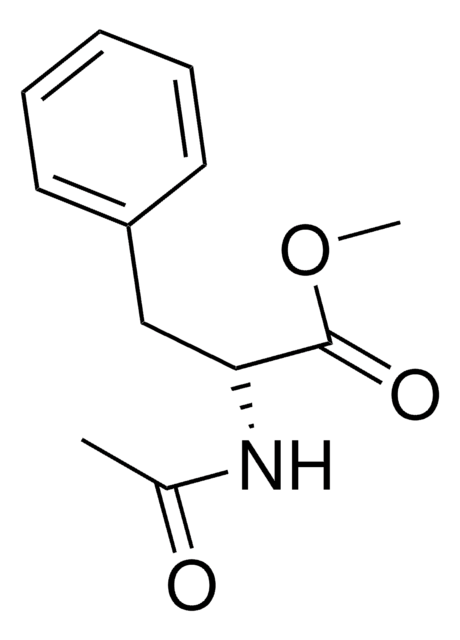Wichtige Dokumente
539430
Cyclohexanondiethylketal
97%
Synonym(e):
1,1-Diethoxycyclohexan
About This Item
Empfohlene Produkte
Qualitätsniveau
Assay
97%
Brechungsindex
n20/D 1.4360 (lit.)
bp
76-78 °C/20 mmHg (lit.)
Dichte
0.908 g/mL at 25 °C (lit.)
Funktionelle Gruppe
ether
ketal
SMILES String
CCOC1(CCCCC1)OCC
InChI
1S/C10H20O2/c1-3-11-10(12-4-2)8-6-5-7-9-10/h3-9H2,1-2H3
InChIKey
MWUDABUKTZAZCX-UHFFFAOYSA-N
Allgemeine Beschreibung
Anwendung
Signalwort
Warning
H-Sätze
Gefahreneinstufungen
Eye Irrit. 2 - Flam. Liq. 3 - Skin Irrit. 2 - STOT SE 3
Zielorgane
Respiratory system
Lagerklassenschlüssel
3 - Flammable liquids
WGK
WGK 2
Flammpunkt (°F)
140.0 °F
Flammpunkt (°C)
60 °C
Persönliche Schutzausrüstung
Eyeshields, Gloves, type ABEK (EN14387) respirator filter
Hier finden Sie alle aktuellen Versionen:
Analysenzertifikate (COA)
Die passende Version wird nicht angezeigt?
Wenn Sie eine bestimmte Version benötigen, können Sie anhand der Lot- oder Chargennummer nach einem spezifischen Zertifikat suchen.
Besitzen Sie dieses Produkt bereits?
In der Dokumentenbibliothek finden Sie die Dokumentation zu den Produkten, die Sie kürzlich erworben haben.
Unser Team von Wissenschaftlern verfügt über Erfahrung in allen Forschungsbereichen einschließlich Life Science, Materialwissenschaften, chemischer Synthese, Chromatographie, Analytik und vielen mehr..
Setzen Sie sich mit dem technischen Dienst in Verbindung.










